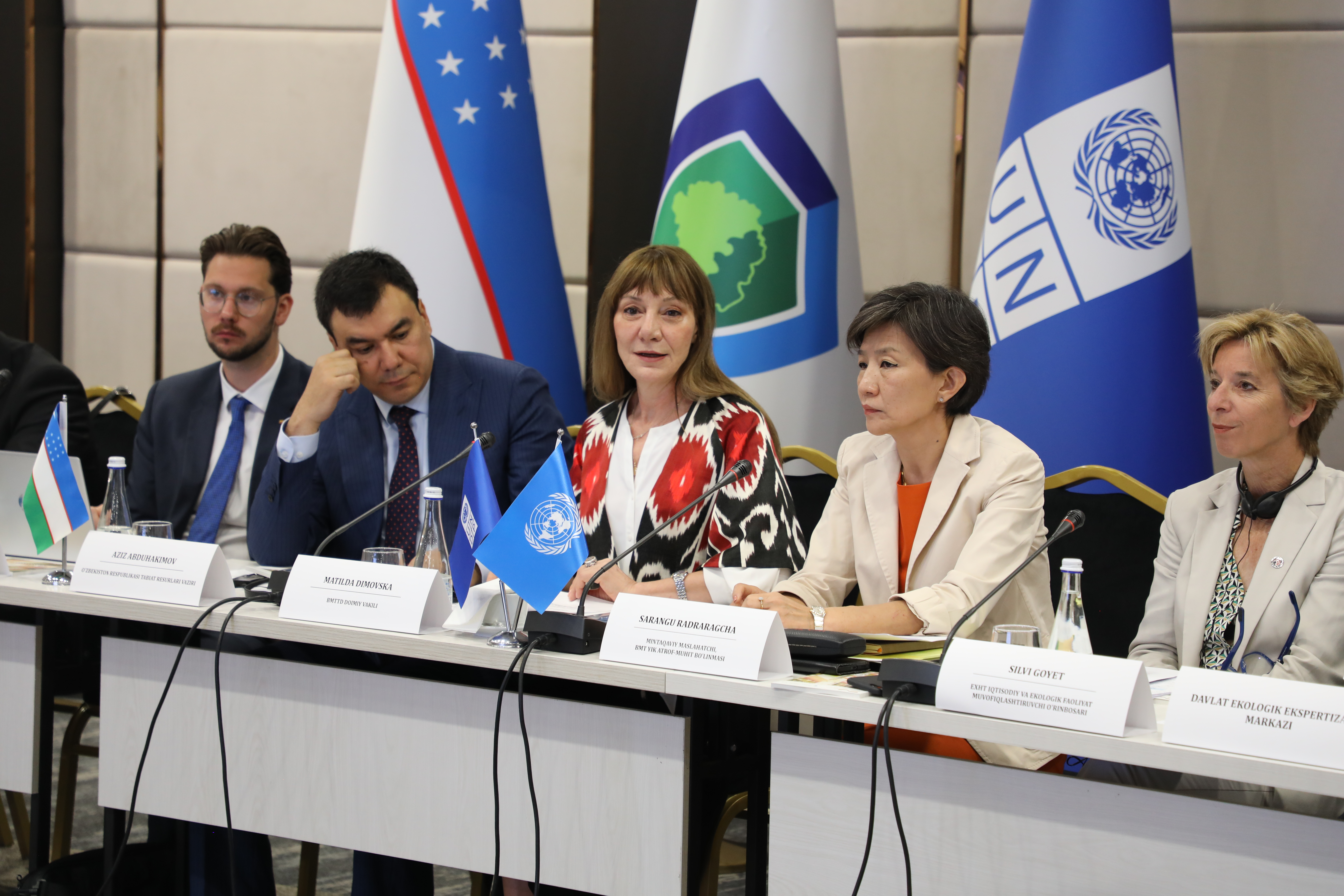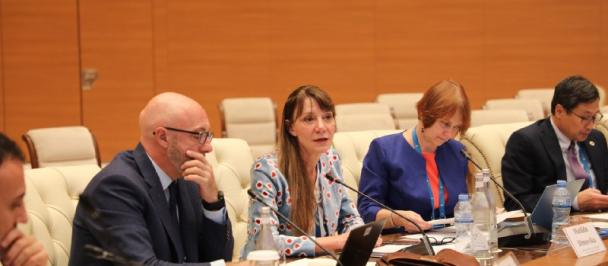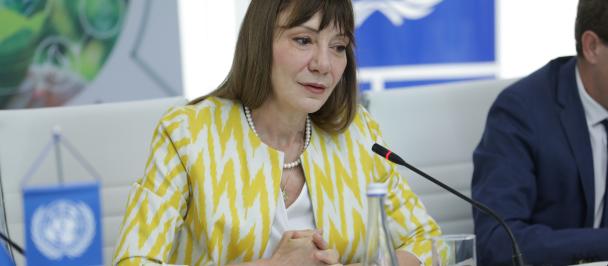Statement by Matilda Dimovska, UNDP Resident Representative at the International Roundtable "Aarhus Convention: Effective Public Participation for Good Governance, Healthy Environment and Sustainable Development"
June 1, 2023

Photo: UNDP Uzbekistan
Muhtaram Janob Abdukhakimov, Minister of Nature
Mr. Aurimas SALADŽIUS, Chairperson of the Bureau to the Aarhus Convention
Hurmatli honimlar va janoblar! Assalomu aleykum,
Let me stress the pertinence of today’s event for further improving the environmental management in Uzbekistan.
It is a very important signal that environment protection is discussed with such attention, at a time when the country is going through significant transformation and as the world continues to be gripped by different crises - energy crisis, conflicts and wars, which spare no single country from shocks and unmet expectations of citizens.
We praise the leadership of Uzbekistan for the commitment to the environment-related Sustainable Development Goals and for the notable results made over the past years (protection areas increased from 4.6% in 2016 to 14,8% in 2022). The Concept of Environmental Protection till 2030 set the policy directions, the 2020 Environmental Performance Review provided further insight.
The new Constitution significantly increases the citizen’s rights - economic, social, cultural, and (now) ecological rights. Article 49 introduced new right ‘to a favorable environment, reliable information about its condition.’ The state shall create conditions and has responsibility (under the principle of sustainable development) for measures to improve, restore and protect the environment, maintain ecological balance. Particularly for the Aral Sea region - to protect and restore its ecological system, social and economic development.
Which also raises the question around the extent to how this right will be enforced, as it requires complex interventions and resource decisions.
The threats of Uzbekistan’s environmental sector are well known: widescale habitat conversion and degradation, over-grazing, and rapid – and often unplanned – spread of settlements, air and water pollution, harming farming and infrastructure and tourism practices.
The vulnerability of ecosystems of Uzbekistan to climate change is higher than in other parts of the world, leading to desertification, reduced biodiversity; while ecosystems and their biodiversity are key for climate mitigation and adaptation.
The biodiversity crisis leads to a crisis of economy. Loss of biodiversity and ecosystem services can push up costs, heighten risks and cause decrease of economic performance. Livelihoods of many people depend on natural resources and their management.
We’re already seeing this play out. The drying Aral Sea, more frequent dust storms across the country - are stark reminders of vulnerability and criticality of responsible natural resource use.
Within this context, acceding to the Aarhus convention by Uzbekistan is right step to do, consistent with the approach and policies we see undertaken.
Therefore, the event and the opportunity to focus on the importance of public participation for good governance, healthy environment and sustainable development is very timely. As is the opportunity to learn for European and Central Asian countries’ experience in harnessing the benefits of the Aarhus Convention during these two days.
If the environment as a public good, then public participation is key to environmental goals.
The broader point is that there is no single way of addressing environmental challenges nor they can be addressed in isolation from economic and other development needs. And that only a comprehensive approach has chances to make difference:
For example - the role of education on environmental protection, and its direct link between public participation and strengthening education in environmental protection. We are glad to note that the Government is advancing some initiatives on this topic as well.
As for the public participation, we have seen in practice how public participation contributes to better outcomes, and in general sustainability of any policy and action. UNDP will be sharing the experience and lessons learnt on public participation throughout our work in Uzbekistan.
I will refer to Yashil Makon initiative, the success of which we believe will largely be determined by the level and model of public participation and community engagement model.
While different institutions are already involved in different phases of programme implementation (planting, infrastructure development, maintenance, financing, monitoring), there is a need for the stakeholder communities to be aware, participate, and hold ownership of it. Only in that case the initiative will be sustainable.
And finally - informed citizens can make informed decisions.
Access to information plays an important role in development, democracy, and equality –United Nations promotes and protects access to information as a fundamental human right.
It is good that the article 49 of the Constitution provides that everyone shall have the right to a favorable environment and reliable information about its condition. But what is the right model that will make its implementation sustainable?
We hope answers to these questions will become clearer during this workshop, and that will help Uzbekistan make not only the decision to accede to the Aarhus convention but also equip it implement its full spirit and in the interest of its people.
UNDP is here to support Government in that process, and particularly different aspects of the governance system needed for environment protection and sustainable development.
Ecosystems and their biodiversity are key for climate mitigation and adaptation. Loss of biodiversity and ecosystem services can push up costs, heighten risks and cause decrease of economic performance. Livelihoods of many people depend on natural resources and their management. Article 49 of the new Constitution of Uzbekistan introduced new right ‘to a favourable environment, reliable information about its condition.’ That is why, the opportunity to focus on the importance of public participation for good governance, healthy environment and sustainable development is the right and timely step.Matilda Dimovska, UNDP Resident Representative in Uzbekistan

 Locations
Locations

